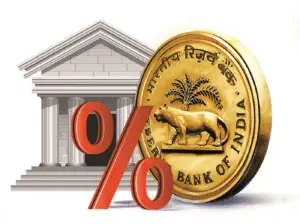📝 RBI Rate Cut August 2025: Central Bank Signals Relief as Inflation Falls to 4.3%
📉 Why the RBI May Cut Rates in August
The central bank has been in a wait-and-watch mode for the last several quarters, maintaining a cautious stance despite pressures from the industry and financial markets. However, the recent decline in retail inflation — driven by easing food prices and stable fuel costs — has created the perfect environment for monetary easing.
RBI Governor Shaktikanta Das said in his latest policy note,
“We are closely monitoring inflation dynamics. If the current trend continues, the monetary policy committee may take a calibrated step to support growth.”
💸 What a Rate Cut Means for You
A repo rate cut by the RBI will directly impact:
EMI payments on home, auto, and personal loans — expect lower monthly payouts.
Corporate borrowing — cheaper loans for businesses could mean higher investment and job creation.
Stock market sentiment — markets generally respond positively to rate cuts, especially in banking and real estate sectors.
Financial institutions like SBI, HDFC, and ICICI Bank are already signaling adjustments to lending rates in anticipation of the RBI’s move.

📈 Boost to Growth Prospects
The timing of this potential RBI rate cut in August 2025 couldn’t be better. With private investment slowly picking up and the global economy stabilizing post-recession concerns, this could give India’s economy a much-needed mid-year boost.
Economists forecast that a 25–50 basis point cut could push GDP growth by 0.4%–0.6% in the upcoming quarters, provided consumption and exports maintain pace.
🧐 What Experts Are Saying
Leading economists and financial analysts are optimistic:
Dr. Rupa Subramaniam, Economist: “The inflation trend gives RBI the flexibility to act. This could be a turning point for MSMEs and rural borrowers.”
Naveen Tiwari, Market Strategist: “We expect a 25 bps cut in August, with scope for another by year-end if inflation remains under control.”
📊 Final Thoughts
The potential RBI Rate Cut in August 2025 signals a positive shift in India’s monetary policy environment. With inflation easing and growth requiring a fresh push, this move could stimulate borrowing, improve investor confidence, and encourage economic activity across sectors.
As always, much will depend on how inflation behaves in July and how global trends evolve. But for now, the signs are promising — and the countdown to August has begun.
❓ Frequently Asked Questions (FAQ) – RBI Rate Cut August 2025
✅ 1. What is the RBI rate cut announced in August 2025?
In August 2025, the Reserve Bank of India (RBI) announced a 25 basis points cut in the repo rate, bringing it down to 6.00%, in response to a projected decline in retail inflation to 4.3%.
✅ 2. What is a repo rate, and why does it matter?
The repo rate is the interest rate at which the RBI lends money to commercial banks. A lower repo rate reduces borrowing costs, which can stimulate spending, investment, and economic growth.
✅ 3. Why did the RBI cut the interest rate in August 2025?
The rate cut was driven by:
Cooling inflation, expected to average 4.3%
Improved food supply and stable fuel prices
The need to boost credit demand and maintain economic momentum amid global uncertainty
✅ 4. How will this rate cut affect EMIs and loans?
The rate cut is likely to lead to:
Lower EMIs on home, auto, and personal loans
Cheaper credit for businesses and startups
Greater affordability in the real estate and consumer sectors
✅ 5. How does this impact inflation and growth?
While the rate cut supports economic growth, it is a calibrated move to ensure that inflation remains within the RBI’s target range of 2–6%, keeping price stability in check without overheating the economy.
✅ 6. Will banks pass on the benefits to customers?
Most major banks are expected to revise their lending rates downward within a few weeks. The actual benefit depends on the type of loan (floating or fixed) and the bank’s internal policy.
✅ 7. What sectors benefit the most from a rate cut?
Key sectors likely to benefit include:
Real estate and housing
Auto and consumer durables
Banking and NBFCs
MSMEs and startups
✅ 8. Is this the start of a longer rate-cut cycle?
It’s too early to say. The RBI has hinted at a data-driven approach, meaning future cuts will depend on:
Inflation trends
Global interest rate movements
Fiscal policy stability
✅ 9. What does this mean for depositors and savings?
While borrowers benefit from lower rates, depositors may see slightly reduced interest rates on fixed deposits (FDs) and savings. However, many banks may hold rates steady to retain liquidity.
✅ 10. How does this rate cut impact the stock market?
A rate cut usually boosts investor sentiment, especially in interest-sensitive sectors like banks, auto, real estate, and infrastructure. It may also lead to increased foreign inflows into Indian equity markets.




